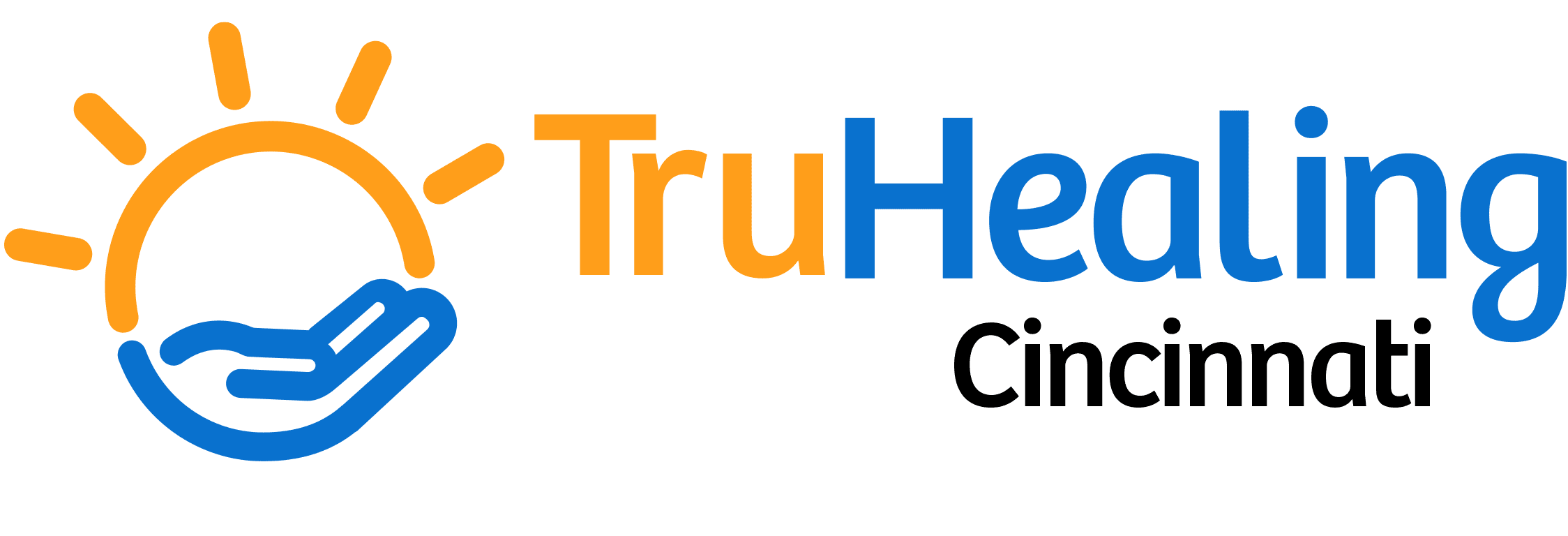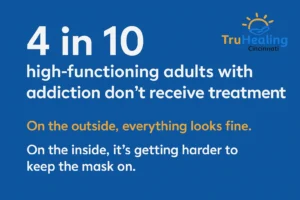You wake up and move through your day like usual. You answer emails, make calls, maybe even close a few deals. You’re reliable. Functional. People depend on you.
But deep down, you know you’re unraveling.
Not dramatically. Not all at once. Just slowly—and only when no one’s watching.
That’s the reality for a lot of high-functioning adults living with addiction. On the outside? Everything looks fine. On the inside? It’s getting harder to keep the mask on.
The idea of treatment might feel too big. Too exposed. Like something for “those people”—not someone like you.
But outpatient addiction treatment isn’t about losing your life to get it back. It’s about finally living one life instead of two. And for a lot of high-functioning individuals, it’s the most realistic, sustainable path to long-term change.
Let’s talk about what that actually looks like.
Addiction Doesn’t Have to Look Like Collapse
We all have images in our minds of what “real” addiction looks like. Chaos. Rock bottom. A dramatic moment that forces everything to stop.
But many people who need help never reach that kind of crisis point—because they’ve built their entire lives around preventing it.
Maybe you drink after work every day but still wake up and perform. Maybe you take pills to keep your energy up or anxiety down, but you’ve never missed a deadline. Maybe your closest friends have no idea anything’s wrong.
High-functioning addiction is real. And it’s exhausting.
The problem isn’t that you’ve lost everything. The problem is how much energy it takes to keep everything going while falling apart inside.
Outpatient Treatment Isn’t a Step Down. It’s a Step In.
One of the most common reasons people delay getting help is the assumption that treatment means disappearing. Quitting your job. Leaving your family. Announcing to the world that you’re “in recovery.”
But that’s not the only path.
Outpatient addiction treatment allows you to receive structured clinical support while staying connected to your life. It’s discreet, flexible, and tailored for people who need accountability without full-time care.
At TruHealing Cincinnati, our outpatient programs include:
- Individual therapy to explore root causes, stressors, and strategies
- Group therapy to build connection and reduce isolation
- Case management to help navigate real-life barriers
- Relapse prevention planning that respects your pace and risk factors
This isn’t about fitting your life around treatment. It’s about building treatment around your life—so it works long-term.
What Real Healing Looks Like (Even If You’re “Still Functioning”)
One of the hardest parts about being high-functioning is how easy it is to convince yourself you don’t need help.
But here’s what you might not see yet:
- The fatigue isn’t just physical—it’s emotional.
- The secrecy isn’t just inconvenient—it’s isolating.
- The control isn’t a sign of wellness—it’s a coping strategy that’s running out of road.
Outpatient care gives you a place to stop managing symptoms and start addressing causes. You get to talk about what’s really happening, with professionals who don’t need you to perform, impress, or pretend.
And that shift—going from secrecy to support—is what makes long-term recovery possible.
You’re Not Broken. You’re Burned Out.
Many of our clients aren’t at risk of losing everything. They’re at risk of losing themselves.
The late nights, the overworking, the pressure to stay composed—it adds up. Substances become a pressure valve. A way to keep moving.
But eventually, even the coping mechanisms stop working. You’re not broken for getting to that point. You’re just human.
Outpatient addiction treatment gives you a place to come out of hiding—not into chaos, but into clarity. Not to fall apart, but to finally breathe.
You Can Start Quietly—And Build Loud Results
Recovery doesn’t have to start with a dramatic moment. It can start quietly. With one phone call. One intake appointment. One hour a week where you stop performing and start telling the truth.
And yes, outpatient care can work. Especially for high-functioning individuals who are ready to stop surviving and start actually living.
We’ve seen clients:
- Reconnect with their families after years of emotional distance
- Sleep through the night without needing a drink or a pill
- Set boundaries that protect their time, energy, and health
- Learn how to ask for help—and actually receive it
These aren’t just lifestyle upgrades. They’re life reclaims.
A Local Resource That Understands You
If you’re located in Cincinnati or nearby communities, you don’t have to go far to find support that fits your life.
Looking for outpatient addiction treatment in Lexington, Kentucky or Lawrenceburg? We offer discreet, professional services that respect your privacy, time, and goals.
We know that every person’s story is different. That’s why TruHealing Cincinnati builds outpatient programs that are flexible, evidence-based, and built for real life.
If You’re Holding It All Together—But Barely
Here’s what we want you to know:
- You don’t have to wait for a crisis.
- You don’t have to explain everything.
- You don’t have to be “ready” forever.
- You just have to be ready right now.
We’re here to meet you there.
Call (888) 643-9118 to learn more about how outpatient addiction treatment in Cincinnati can support your recovery—quietly, effectively, and on your terms.
Frequently Asked Questions About Outpatient Addiction Treatment
What’s the difference between outpatient and inpatient treatment?
Outpatient treatment allows you to live at home and continue working or managing daily responsibilities while attending scheduled therapy sessions. Inpatient treatment (or residential care) requires you to live on-site at a treatment facility for a set period.
Outpatient is often a better fit for individuals who are stable enough to function day-to-day but need structured support to break out of cycles of use.
Can outpatient treatment work if I’m still using?
Yes—especially if you’re honest about it. Many people start outpatient care while still actively using. What matters most is your willingness to engage. The goal isn’t perfection. It’s progress.
How much time does outpatient treatment require?
It varies. Some programs require a few hours a week; others (like IOPs—intensive outpatient programs) may involve 3–5 days a week for a few hours each day. At TruHealing Cincinnati, we tailor the schedule based on your clinical needs and availability.
Will anyone know I’m in treatment?
Not unless you tell them. Outpatient treatment is private, and we take confidentiality seriously. Most clients structure sessions around their workday or personal schedule without disrupting their routine.
What if I’ve tried treatment before and it didn’t help?
That’s more common than you think. Not every approach works for every person. The fact that you’re reading this means something still wants change. Let’s explore what might work differently this time.


